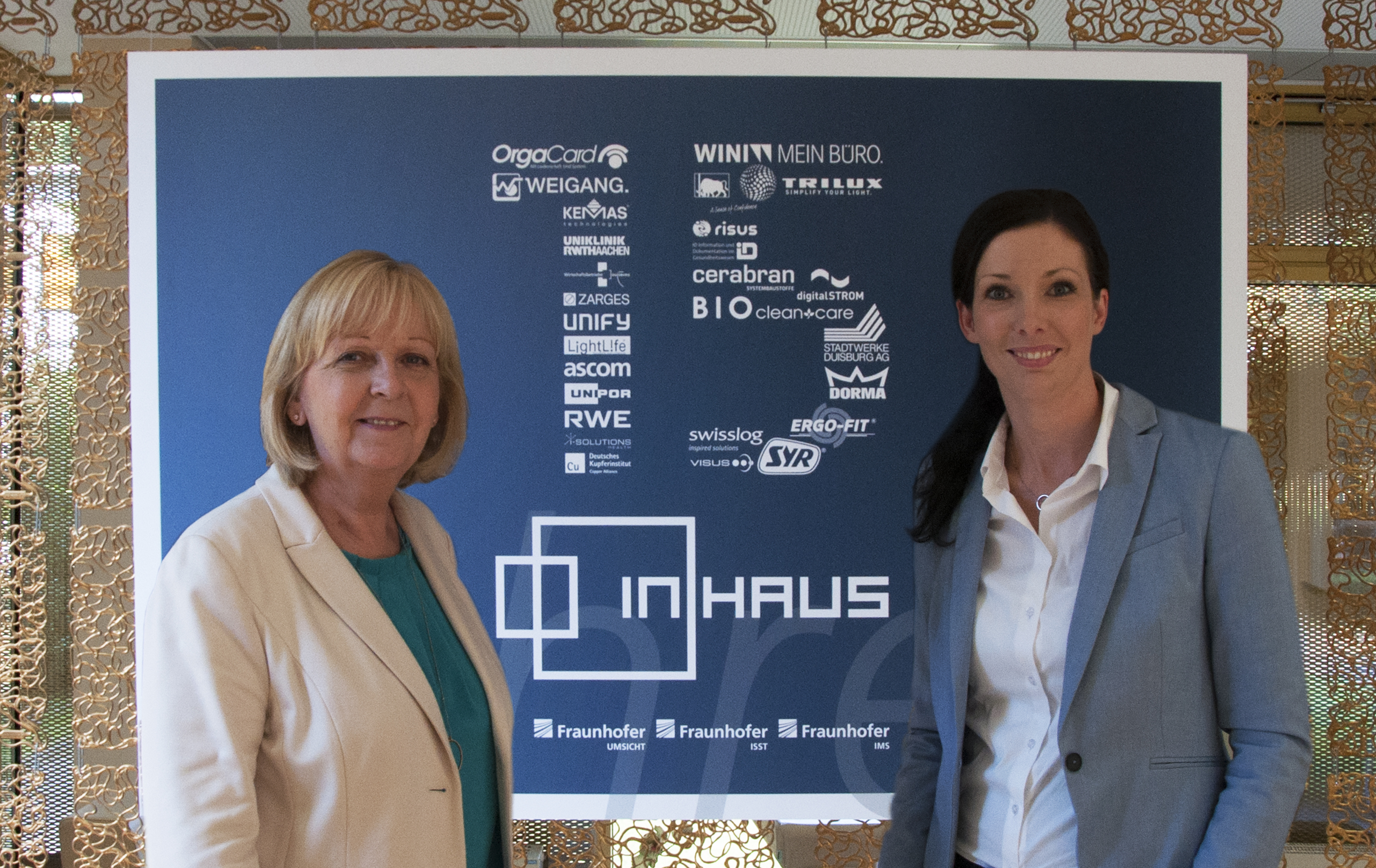Research centred on the human person
1.) In your opinion, which strengths do the innovative location NRW or the research scene of the Ruhr area offer?
“North Rhine-Westphalia has reinvented itself as a country of science, research and education. 1946, when the country was founded, they had six universities in whole NRW – not even one of them in the Ruhr area. Meanwhile the “metropolis Ruhr” does offer the densest higher education landscape. And in whole NRW we do now have 70 universities and more than 50 non-university research institutions – each with its own profile: From basic research at the research institute in Jülich, up to application-oriented research, in which the Fraunhofer institutes stand for excellence and world class. Fraunhofer is well represented in the Ruhr area: Four institutes are located here – and in best company: three Max-Planck-Institutes, five institutions of Leibniz-Gemeinschaft and ten institutes of Johannes-Rau-Forschungsgemeinschaft are located here as well. The Fraunhofer institute for material flow and logistics in Dortmund for example sets standards far beyond the borders of Ruhr area and enjoys an excellent reputation, worldwide. As well as the Horst-Görtz-Institut for IT-safety in Bochum, that unites leading experts of sections like cryptology and data security. Already now more than 700 researchers work in this section. The Ruhr area is an accounted and renowned science region. The structural change that has hit especially the Ruhr area has been successful. North Rhine-Westphalia has shown in its 70-year history that it is able to change. The state government benefits research institutions by fullest conviction, because they stand for the future of our state. In 2016 alone, 8,2 billion euros have been invested in science in sections education, research and development as well as knowledge transfer – that are around twelve percent of the national budget. For 2017 we have planned 8,4 billion euros, so we added again 200 million euros. The result is a science structure, that is unique in Europe and that does provide an important contribution to the innovation development in Germany.”
2.) In which sections in research and development in the region do you currently see pent-up demand?
“The research experts in North Rhine-Westphalia and in the Ruhr area already count on close networking. For us in NRW knowledge and cooperation belong together – and this is what we support in the future as well. Looking on financing, however, this is noticeable: The in North Rhine-Westphalia located business enterprises spend less money on this area, than the Bavarian or the Baden-Württemberg economy does. The state government does invest – in comparison to the other German states – in universities, science, research and development.”
3.) Which subjects are going to play a central role in research and development work in NRW in the future?
“For the state government the focus is on the people. This also applies in research funding. Hence, in North Rhine-Westphalia we take a look on the great social challenges, as it is also the guideline of the EU for their research supporting program “Horizon 2020”. It is about noticeable changes – also called progress that reaches people. As examples I can name three large topics: Energy, health and digitalization. At NRW-universities currently about 2.000 internationally well-known researchers do research on a safe, clean and efficient energy supply. The “InnovationCity Ruhr” in Bottrop can be regarded as exemplary. They have the aim to reduce the energy demand in a district with about 70.000 inhabitants by more than the half and simultaneously save the industry location with more than 22.000 jobs. So we are able to make climate protection to a progress engine in the Ruhr area: After a pilot stage in Bottrop 20 districts in the whole Ruhr area are now being energetically modernized.
Health is also a topic that is going to play a central role in North Rhine-Westphalia. The demographic development poses another great social challenge: Low birth rate, increasing life expectancy of the people and the medical progress change our living and working world. Only in October 2015 we have inaugurated the new campus of the University of Health in Bochum. A research focus of the university is “Health and Technology”, because the progressive digitalization does also affect the health sector. Here, they for example researched telemedical methods that become especially important in times of house and specialist lack. And one thing has become clear: without digitalization none of the future topics are possible. NRW is far ahead, because we have realized this already in 2012 and we made digitalization to a main focus of our government work.”
4.) What do you associate with the work of the institutes of the Fraunhofer-Gesellschaft in NRW und the Ruhr area?
“The 13 Fraunhofer Institutes in North Rhine-Westphalia have strongly contributed to the change of NRW to an excellent research and innovation location. They work with high pressure to constantly improve our living environment. More than 2.400 researchers work on the topics of the future – these are great workplaces for NRW. As state government we are especially pleased about the 14th independent Fraunhofer Institute in our country: From 2017 the Fraunhofer project group mechatronics in Paderborn is going to get the status of an independent Institute. In addition, two Fraunhofer intensive training centers in Dortmund and Oberhausen are planned, in which universities, extramural research institutes and science work together on topics of the future. And the most recent figures show that we are on the right track: Many cities in the Ruhr area grow and young, highly qualified people stay here. For me, this is an expression of a strong, modern and innovative country North Rhine-Westphalia.”
 Fraunhofer-inHaus-Center
Fraunhofer-inHaus-Center